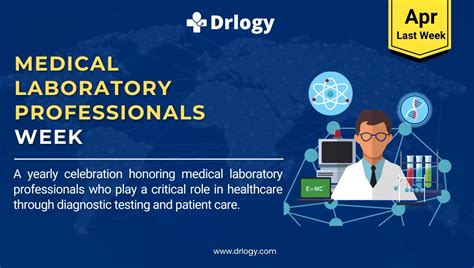As we go about our daily lives, it's easy to overlook the countless medical professionals working behind the scenes to keep us healthy. But there's one group of unsung heroes who deserve our appreciation and recognition: Nuclear Medicine Technologists. That's why we're celebrating Nuc Med Tech Week, a special occasion to honor these dedicated individuals who play a vital role in diagnosing and treating various medical conditions.
Nuclear Medicine Technologists, or Nuc Med Techs for short, are highly skilled professionals who use specialized equipment and techniques to create images of the body's internal structures. These images help doctors diagnose and treat a wide range of conditions, from cancer and heart disease to neurological disorders and infectious diseases. It's a challenging and rewarding field that requires a unique combination of technical expertise, critical thinking, and patient care.
The Importance of Nuclear Medicine
Nuclear medicine is a vital part of modern healthcare, and its applications continue to grow and evolve. From diagnosing cancer and cardiovascular disease to monitoring treatment response and managing pain, nuclear medicine procedures provide valuable insights that help doctors make informed decisions. In fact, nuclear medicine procedures are used in over 10 million patients each year in the United States alone.
But nuclear medicine is more than just a diagnostic tool – it's also a therapeutic agent. Nuc Med Techs use radioactive materials to treat certain conditions, such as thyroid cancer and hyperthyroidism. These treatments can be life-saving, and Nuc Med Techs play a critical role in administering them safely and effectively.
What Do Nuc Med Techs Do?
So, what exactly do Nuc Med Techs do? Here's a breakdown of their typical responsibilities:
- Prepare patients for nuclear medicine procedures by explaining the process, positioning them for imaging, and administering radioactive materials as needed.
- Operate specialized equipment, such as gamma cameras and PET scanners, to create high-quality images of the body's internal structures.
- Use computer software to analyze images and identify abnormalities.
- Collaborate with doctors and other healthcare professionals to interpret results and develop treatment plans.
- Maintain accurate records and follow strict safety protocols to minimize radiation exposure.
It's a demanding job that requires a strong foundation in science, technology, and patient care. Nuc Med Techs must stay up-to-date with the latest advances in nuclear medicine and continually develop their skills to provide the best possible care for their patients.
Celebrating Nuc Med Techs: Honoring Medical Heroes
Nuc Med Tech Week is a special occasion to recognize the dedication, expertise, and compassion of these medical heroes. It's a time to celebrate their contributions to healthcare and thank them for all that they do. Whether you're a patient, a doctor, or simply someone who appreciates the hard work of medical professionals, you can join in the celebration by:
- Sharing your gratitude with Nuc Med Techs on social media using hashtags like #NucMedTechWeek and #MedicalHeroes.
- Learning more about nuclear medicine and the important role that Nuc Med Techs play in healthcare.
- Supporting organizations that promote education, research, and advocacy for nuclear medicine professionals.
By celebrating Nuc Med Tech Week, we can show our appreciation for these unsung heroes and acknowledge the vital role they play in keeping us healthy.

Interesting Facts About Nuclear Medicine
Here are some interesting facts about nuclear medicine that you might not know:
- The first nuclear medicine procedure was performed in 1946, when a doctor used radioactive iodine to treat a patient with thyroid cancer.
- Nuclear medicine procedures are used to diagnose and treat over 100 different medical conditions.
- The most common nuclear medicine procedure is the bone scan, which is used to diagnose and monitor bone cancer, osteoporosis, and other bone-related disorders.
- Nuclear medicine is used in a wide range of medical specialties, including cardiology, oncology, neurology, and pediatrics.
The Future of Nuclear Medicine
As medical technology continues to evolve, nuclear medicine is likely to play an increasingly important role in healthcare. New advances in imaging and therapy are being developed all the time, and Nuc Med Techs are at the forefront of these innovations.
Some of the most exciting developments in nuclear medicine include:
- New imaging agents that can help doctors diagnose and treat diseases more accurately and effectively.
- Advances in PET/CT and SPECT/CT imaging, which allow doctors to combine functional and anatomical information to diagnose and treat conditions more effectively.
- The development of new therapies, such as targeted alpha therapy, which uses radioactive materials to selectively kill cancer cells.

Conclusion
Nuc Med Tech Week is a special occasion to celebrate the contributions of Nuclear Medicine Technologists to healthcare. These medical heroes work behind the scenes to provide critical diagnostic and therapeutic services that help doctors diagnose and treat a wide range of medical conditions.
By learning more about nuclear medicine and the important role that Nuc Med Techs play in healthcare, we can show our appreciation for these dedicated professionals and acknowledge the vital role they play in keeping us healthy.





What is nuclear medicine?
+Nuclear medicine is a medical specialty that uses small amounts of radioactive materials to diagnose and treat various medical conditions.
What do Nuclear Medicine Technologists do?
+Nuclear Medicine Technologists prepare patients for nuclear medicine procedures, operate imaging equipment, and analyze images to help doctors diagnose and treat medical conditions.
What is Nuc Med Tech Week?
+Nuc Med Tech Week is a special occasion to recognize the contributions of Nuclear Medicine Technologists to healthcare and celebrate their role in diagnosing and treating medical conditions.
